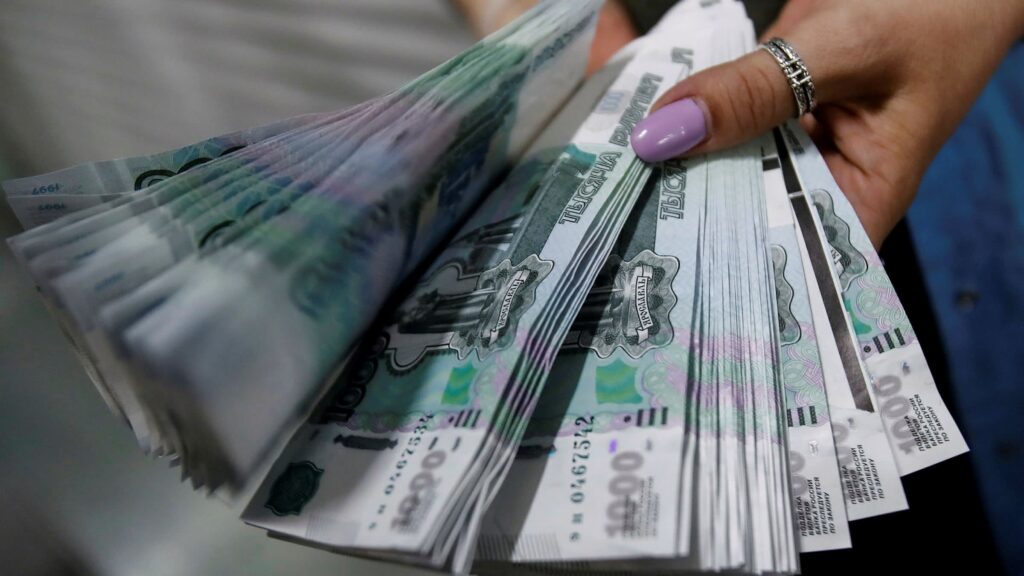Italy’s business leaders talk climate change with Putin during Ukraine crisis

Vladimir Putin sought to convince some of Italy’s most prominent businessmen to “feel as comfortable as possible” about the Russian market during a videoconference that studiously avoided mention of the topic in most minds: the 106,000 Russian troops stationed around Ukraine.
Business leaders including the chief executives of banking group UniCredit, tyre manufacturer Pirelli and state-owned utility Enel discussed Moscow’s climate change ambitions, economic reforms and business opportunities as part of an event on Wednesday organised by the Italian-Russian chamber of commerce, according to participants.
The meeting went ahead despite a plea from Prime Minister Mario Draghi’s office on Tuesday evening to postpone it, said a government official. The head of the Italy-Russia chamber of commerce, Vincenzo Trani, insisted it was too late to reschedule it, said four people involved in the discussions. A spokesperson for Trani was not immediately available to comment.
The encounter underlined the Kremlin’s efforts to sway the European business elite as the US and Europe debate a package of sanctions in case Putin invades Ukraine. The US has warned Moscow was preparing another military attack after its annexation of the Ukrainian peninsula of Crimea in 2014.
Geopolitical tensions between Moscow and the EU and US were not discussed at the meeting, but one participant said there was “a general feeling of embarrassment”. Another said that while the meeting was “badly timed”, backing out at the last minute would have exposed them to retaliation since they had all been doing business in Russia for years.
Francesco Starace, chief executive of Enel, suggested Russia lift its carbon emissions targets, said several participants who spoke under the condition of anonymity. In attendance on the Russian side were the ministers of energy, transport, finance, industry and trade as well as top business figures. Enel declined to comment.
Other Italian state-controlled companies — including oil company Eni, oil service group Saipem and gas transport company Snam — planned to attend the meeting but pulled out on Tuesday.
Kremlin spokesperson Dmitry Peskov denied that any Italian executives had dropped out under pressure from Draghi’s government, saying the changes were because of illness and scheduling conflicts.
Other participants including UniCredit chief Andrea Orcel, Pirelli chief Marco Tronchetti Provera and Generali chair Gabriele Galateri di Genola, discussed their companies’ presence in Russia.
During the initial part of the meeting, which was televised, Putin said Russia wanted Italian business “to feel as comfortable as possible about the Russian market”. He stressed that Italy, one of Europe’s largest importers of Russian gas, had been able to buy gas supplies “far below spot market prices that grew significantly due to the cold winter and a supply glut” thanks to long-term contracts with Kremlin monopoly Gazprom.
The meeting had “nothing to do with the current situation or any sanctions,” Peskov said before the encounter. “Life goes on, business interests are not going anywhere, they have a presence on the Russian market [ . . .] As long as they’re making money in Russia, they’re interested in having this conversation.”
The date of the event was agreed in November with the knowledge of Italy’s foreign ministry. Putin occasionally holds business meetings with European business executives. He met French executives last year and German business leaders in 2019, according to the Kremlin’s website.
Italian government officials have insisted the meeting was a private event. However, the Italian-Russian business committee that helped organise it was created by foreign minister Luigi Di Maio in 2020.
“This would have been no news at a different time. Clearly for the Italian government not to call this off at such a sensitive time was a mistake,” said a chief executive, who nevertheless attended.
Climate Capital

Where climate change meets business, markets and politics. Explore the FT’s coverage here.
Are you curious about the FT’s environmental sustainability commitments? Find out more about our science-based targets here